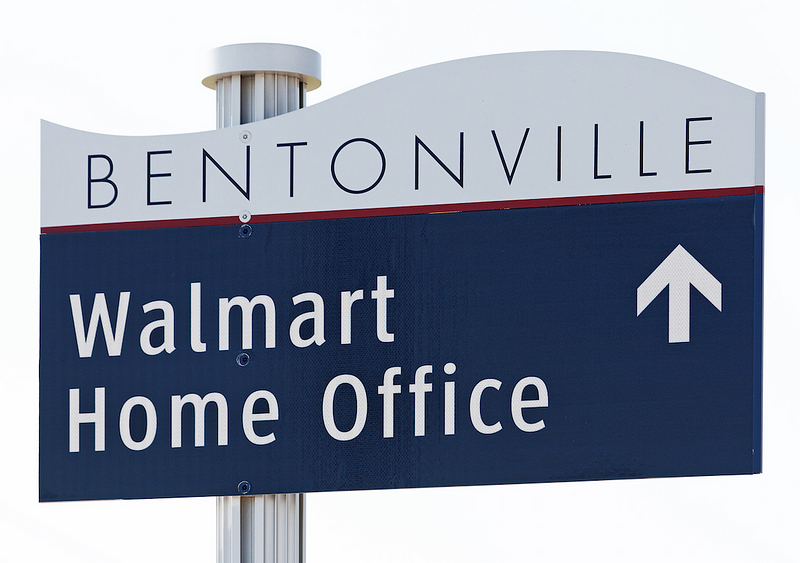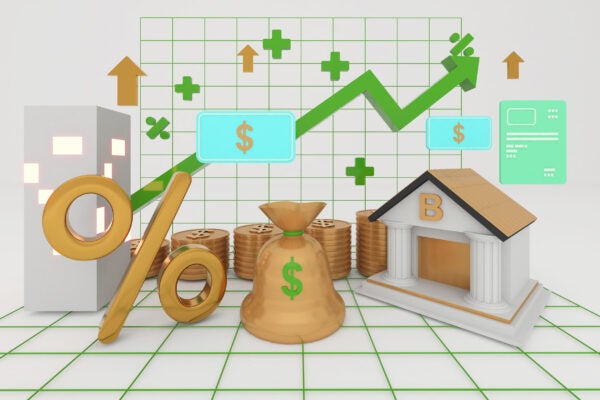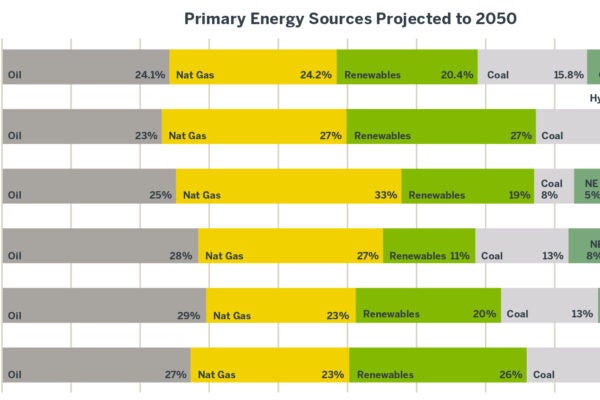Improve Your Company’s Social Reputation, and Investors Will Notice
There’s good news for companies with bad reputations for social responsibility, finds a new study from Texas McCombs
Based on the research of Vijay Mahajan

More than a decade ago, as a marketing doctoral student at Texas McCombs, Jacob Brower, Ph.D. ’11, attended a conference convened by Walmart Inc. The superstore chain was launching a campaign to go green, in everything from organic produce to architecture. Executives wondered whether the changes might also improve the company’s public image, at a time when it was being blamed for social ills like low wages and shuttered mom and pop stores.
The question stuck with Brower, now assistant marketing professor at Queen’s University in Kingston, Ontario. “Does a firm get rewarded for trying to be good?” he asks. “Or is a firm with a negative reputation perpetually stuck in a loop? No matter how much good they do, will people remember mostly the negatives?”
In researching this question, Brower, along with McCombs Marketing Professor Vijay Mahajan and Saim Kashmiri, Ph.D. ’12, now associate marketing professor at the University of Mississippi, finds there’s hope for such firms. A company will get rewarded by Wall Street for bettering its social performance.
“Reputation is not a one-time deal. If you’ve done one bad thing but several good things, the market will eventually forgive you.” — Vijay Mahajan
Rehabilitation takes time and commitment, the researchers found, and investors punish backsliders. The research offers lessons on how to repair your social standing with investors — and how not to.
Yardstick for Social Performance
The researchers’ first challenge was finding the right measure for a firm’s social record. A database called KLD Stats, widely consulted by socially conscious investors, rates firms in seven major areas, from environment and humanitarian concerns to diversity and charitable giving.
It also breaks them down into dozens of subcategories, both positive and negative. Generating hazardous waste can lower a company’s environmental score, while a recycling program can raise it.
What’s most important, says Brower, is not a single number but the arc of a company’s path over time. Does its social responsibility rating rise or fall? Does it rise in a straight line, or are there setbacks?
Besides measuring a firm’s history of social initiatives, the researchers wanted to measure how investors perceived that history. They used a ratio, called Tobin’s Q, that’s commonly used to gauge a firm’s reputation on Wall Street. It compares a company’s market value — adding up all its outstanding shares at their current price — to the assets on its books.
The higher that excess market value, the more worth investors are placing on intangibles like public image. Says Mahajan, “It indicates whether the market pays attention to the consistency of your social reputation.”
Consistency Matters
Looking at 351 companies over seven years, the researchers discovered that investors were indeed paying attention. Firms that steadily boosted their social responsibility ratings over time were blessed with higher stock prices.
But inconsistency was met with a different fate. Investors penalized companies whose scores rose one year and fell the next. One such reversal in five years, the study found, was enough to wipe out 40 percent of gains from positive actions.
“If you launch a new initiative, then cancel it, not only will you be wondering why it didn’t pay off, but you’ve introduced a new reversal, which causes more problems going forward.” — Jacob Brower
Such reversals can happen in different ways in different categories, Kashmiri explains. A company loses points on diversity if it appoints a woman to its top management team and fires her two years later.
In charitable giving, a one-off good deed can lead to a black mark. “One year, you might have a big natural disaster like Hurricane Harvey or Hurricane Irma. You make a big donation to those causes,” says Kashmiri. “The next year, there’s not a disaster, and you pull back on donations.”
A Long Haul
The moral, the researchers say, is that if a company wants to improve its profile for social responsibility, it should not look for immediate applause.
“When a company sets off on a new path, it should not expect it to pay off overnight,” Brower says. “It needs to be consistent for several years. It’s in a company’s long-term interest to make sure that once an initiative is implemented, it stays implemented.”
That can be a challenge when a firm changes CEOs, he says. One solution is to build attention to social initiatives into a new executive’s pay package. Incentives like stock options could be based partly on continued improvement in a firm’s social responsibility score.
Firms should view such incentives as investments rather than expenses, Mahajan suggests. “Whatever you invest in corporate social responsibility, you have to look at it as investing in a marketing asset.”

If a firm keeps up those investments, they should eventually pay off. Brower recounts a recent interview with a young journalist, in which the topic turned to Walmart.
“She didn’t remember Walmart having a bad reputation,” he says. “Over the past decade, they’ve done a lot to green their supply chain and improve their environmental footprint, their transportation network, and the products they carry.”
Brower thinks back to first hearing of Walmart’s efforts to reverse its poor public image. “People at that original conference said there was no way they were ever going to overcome that reputation. But being consistent in that element of their business has changed people’s perceptions.”
“Signaling virtue: Does firm corporate social performance trajectory moderate the social performance–financial performance relationship?” was published in the Journal of Business Research
Story by Steve Brooks
About this Post
Share:


